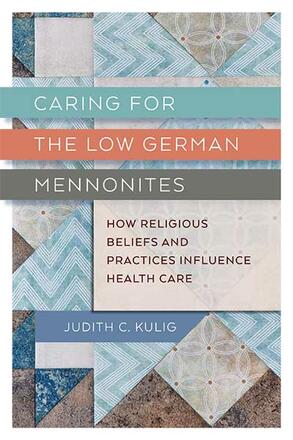
Caring for the Low German Mennonites
How Religious Beliefs and Practices Influence Health Care
A meticulous account and vivid illustration of the influence of religious beliefs on health practices, this book is essential reading for health care practitioners and students working with religiously diverse populations in Canada.
Description
What happens when health care providers meet patients whose religious views contrast with mainstream health practices? This book focuses on a unique religious group, the Low German Mennonites, to examine ways in which beliefs and practices influence members’ interactions with the health care system. Drawing on nearly twenty years of research, Judith Kulig presents a meticulous account and vivid illustration of the influence of religion on a community’s conceptions of health and illness, women’s health, death and dying, and mental health. She argues that health care providers must acknowledge and respectfully inquire about a patient’s beliefs in order to implement care and treatment. Kulig shows that trust and understanding are key to providing appropriate and equitable health care.
Reviews
Dr. Judith King is a well-known rural health researcher who has spent twenty years of her academic career studying Low German Mennonites...She adeptly portrays the complexity of this group.
- Kathryn Fisher, McMaster University
The data presented in the book provide an in-depth perspective of the importance of healthcare concerns and indicate community openness to improving access and delivery. It is encouraging that these groups by and large are sufficiently aware of and trusting to seek out the best care when available. Science and medicine are appreciated for their values in improving life.
- Joseph B. Martin, Dept of Neurobiology, Harvard Medical School